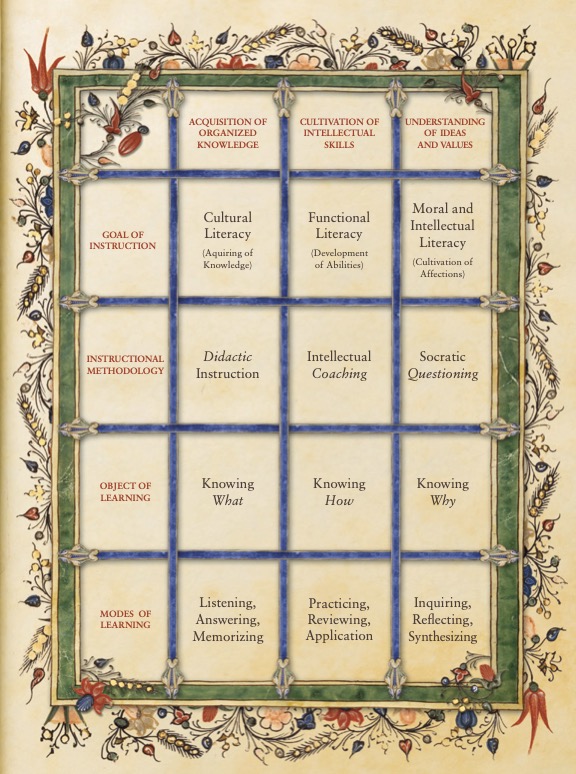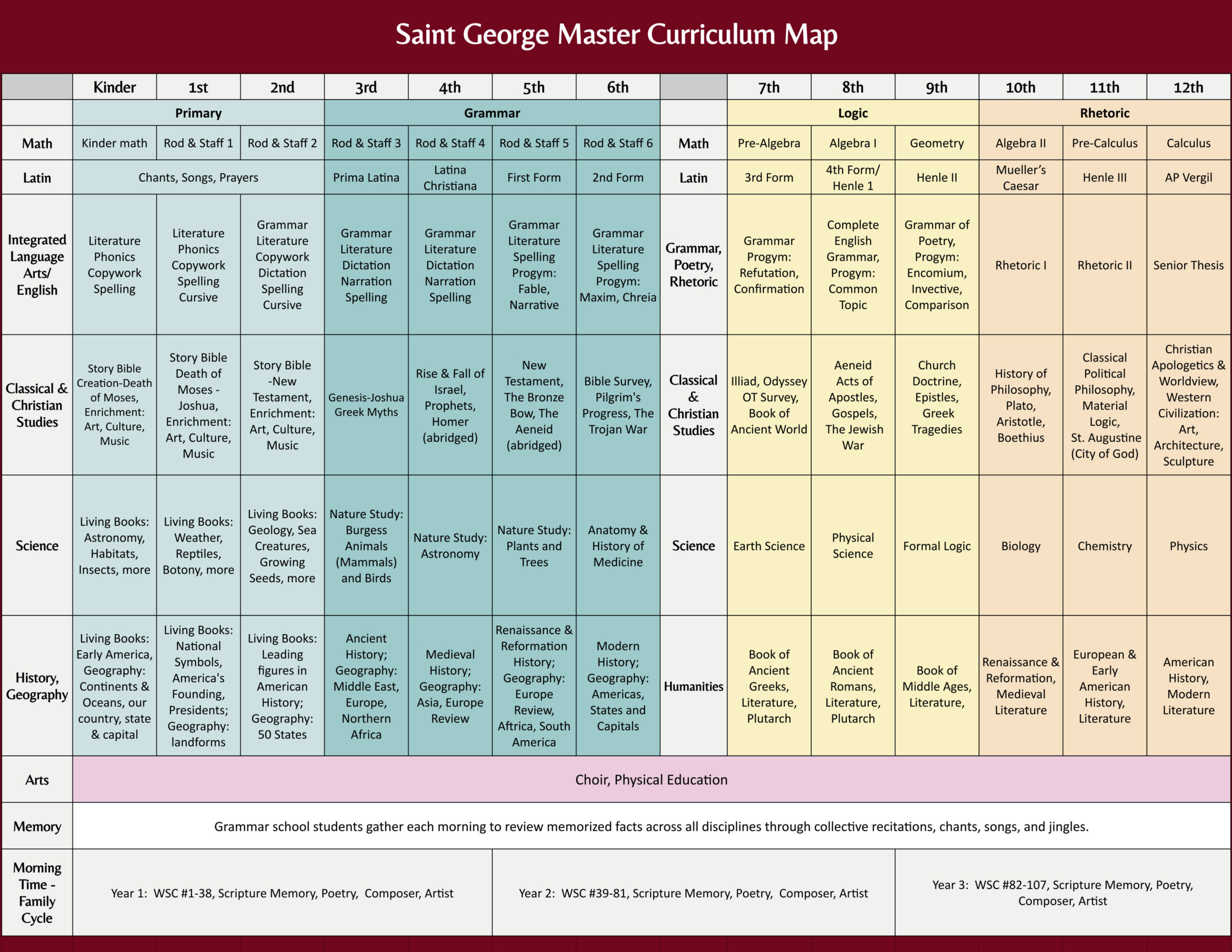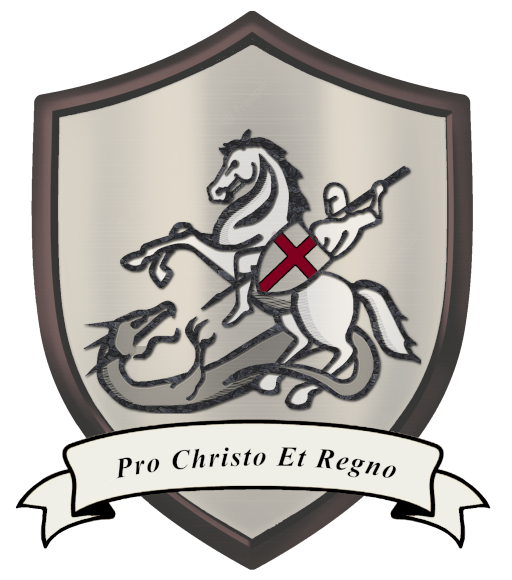Grounded in Piety
We have inherited the belief from the ancient Hebrew, Greek, and Roman cultures that education is fundamentally about shaping loves. The endeavor of shaping loves begins with the attitude of both child and teacher in the earliest grades.
Our teachers model the virtue of piety, which is the “proper love and fear of God and man.” The education of a precious soul cannot properly take place outside the context of a humble recognition of one’s place in the world and one’s duty of love and respect towards God, family, and community. We agree with Cicero, who said that piety is the foundation of all other virtues. A humble and pious heart is the necessary starting point for a classical education.
The Three Pillars
“For the wise men of old the cardinal problem had been how to conform the soul to reality.”
-C.S. Lewis, The Abolition of Man
Our pedagogy largely relies on the educational taxonomy developed by Mortimer Adler, “The Three Pillars.” This taxonomy identifies three basic emphases of education: the acquisition of knowledge, the cultivation of skills, and the understanding of ideas and values. The basic insight of this paradigm is this: what we teach dictates how we teach.

Our Curriculum
We are dedicated to the idea that true education requires more than imparting knowledge, training skills, or even teaching students to think, though all of these are important. Our course of study aims to cultivate in students what the ancient Greeks and Christians called paideia. Paideia can be understood as the set of assumptions or worldview a student holds and the rightly ordered affections that drive what he or she is passionate about. The curriculum (course of study) outlined below was designed with this broad goal of the cultivation of the whole person in mind.

